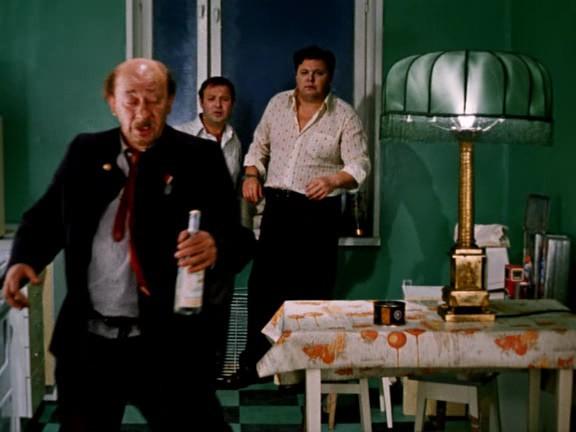Film Seminar "The Sin of Prosperity – Guilt, or ‘Too Much of a Good Thing’?"
25.01.2012, 19.00
Center for Urban History, Lviv
The meeting included the screening and discussion of N. Ardashnikov’s and O. Yefremov’s Old New Year (USSR, 1980).
1980 was the peak of the so-called Stagnation Period in the USSR. The postwar reconstruction had yielded results, and the level of life in the large cities improved substantially. Housing, education, stable jobs, and social security were no longer ideal values, but the basis of everyday life. An average resident of a socialist city had gone reasonably far in arranging her material well-being. Although the prosperity of such an urban dweller was still relative (after the privations of the postwar years), mass urban culture began introducing moderately high standards of living. The internal contradiction between materialistic and idealistic values, introduced into the Soviet discourses during Stalinist times, faded unresolved.
The tragicomedy Old New Year illustrates the last attempts of the new bourgeois urban culture to inscribe itself into the general grand narrative of Soviet idealism. The conclusion of the "New Year Season" provokes the protagonists to reconsider their place in life. What are these naïve attempts at self-criticism – a simple manifestation of mid-life crisis? A hangover? The afterglow of outdated ideals and youthful dreams? Like all good films, Old New Year does not provide final answers. However, the conclusion of the movie hints that the emancipation of the bourgeoisie has reached the point of no return.
Credits
Cover Image: Still from O. Yefremov’s Old New Year (USSR, 1980).
